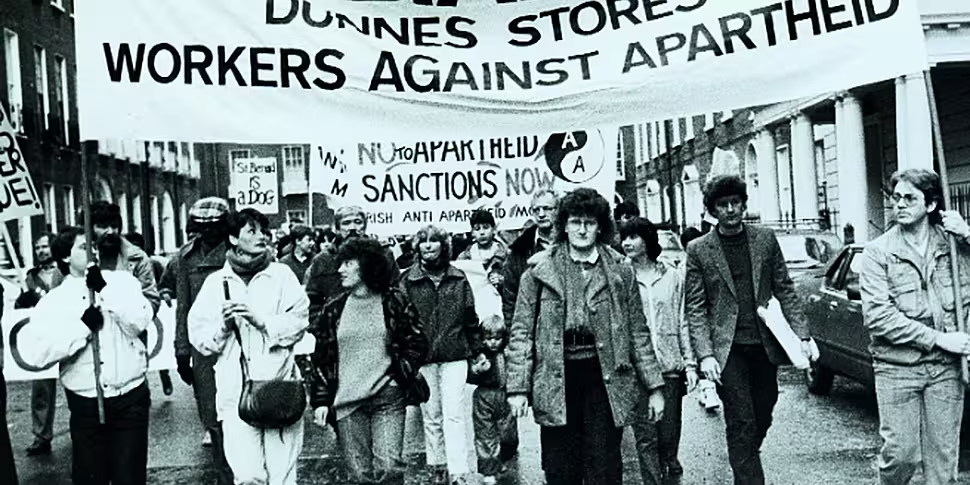With the world mourning the loss of Nelson Mandela, many reports over the last week have reminded us of the historic impact of Ireland's anti-apartheid activities. The activities included the boycott of South African products in the early and mid 1980s, a move supported by trade unions and individuals.
Mary Manning was a then 21-year-old cashier who was suspended from her job in Dunnes Stores in 1984 for refusing to handle goods broughts from South Africa. With Manning and many of her Dunnes colleagues who participated in the almost three-year long strike visiting South Africa this week for the Mandela memorial services, Diarmaid Ferriter joined Pat in studio to reflect on this fascinating chapter of contemporary Irish history.
Diarmaid opened by explaining, "the interesting thing about the [Dunnes strikers] was that they were not active in the anti-apartheid movement at the time of the strike. What they were doing were following the instructions of their trade union which had decided this would be their policy in relation to South African. Now obviously they became much more aware afterwards of the apartheid situation... it was an indication that the trade union movement was very much to the forefront in highlighting this issue".
However, Ferriter stresses that wide acceptance of these policies and actions was not immediate. "Let's not rewrite history here," he reflected. "It was quite clear at that time in 1984 that there was very little public support for them. Even the Irish Congress of Trade Unions refrained from even rhetorical backing of this strike until a year later".
You can listen back to the podcast discussing this complex topic via the player above.









